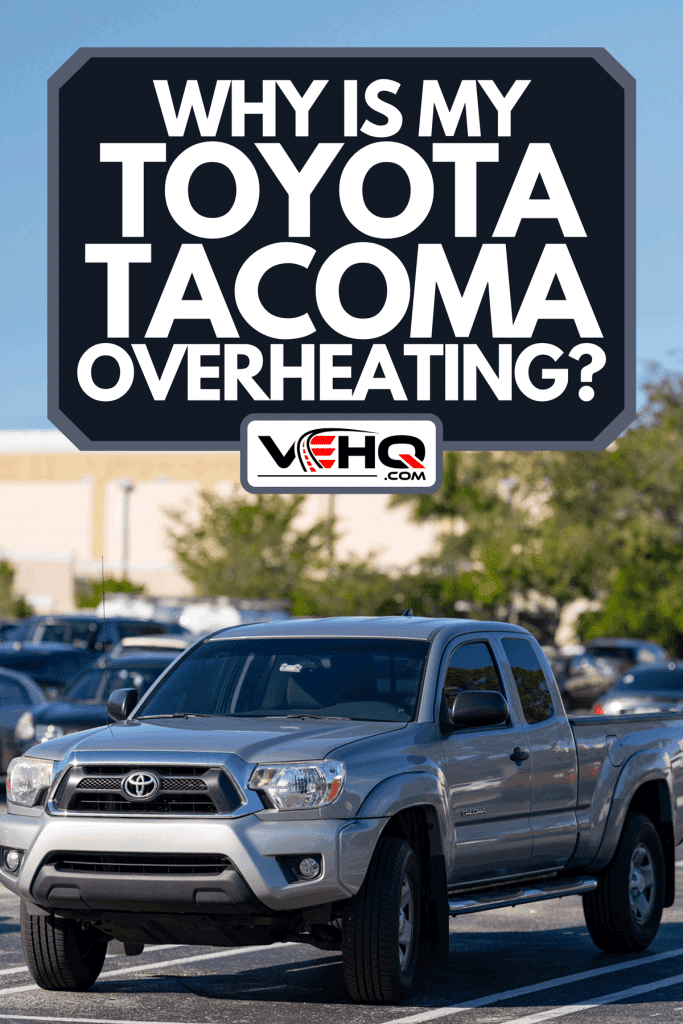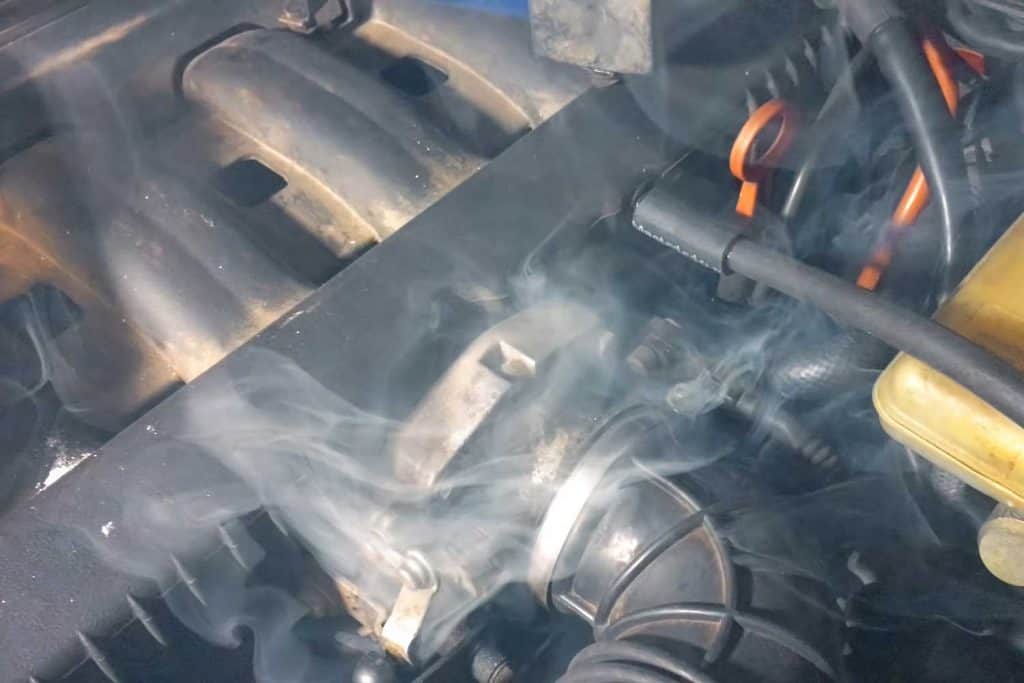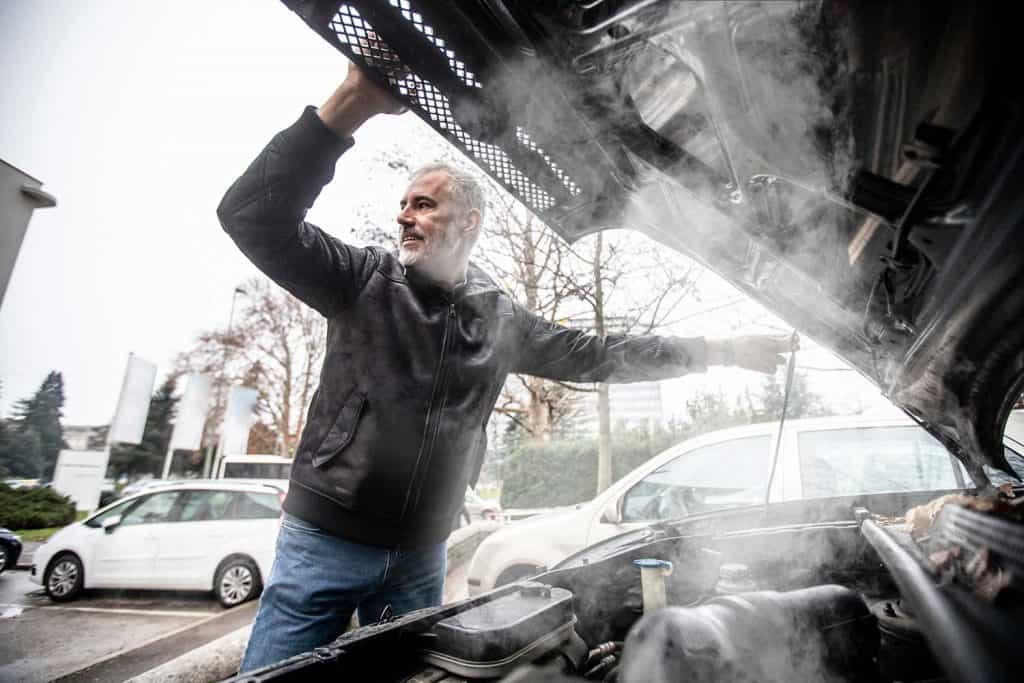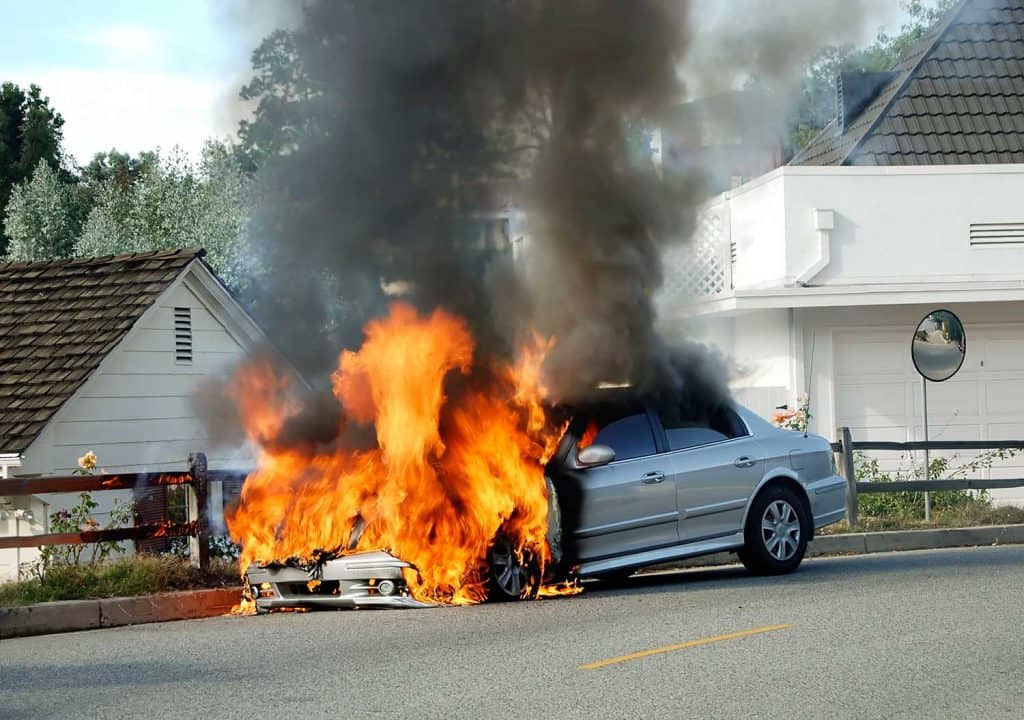Having to pull your vehicle over because it's overheating can be a frustrating and scary experience. If you know anything at all about automotive engines, you know that excessive heat can cause irreversible damage to them. While you can avoid some causes for overheating, others can be due to issues beyond your control. If you have a Toyota Tacoma that is overheating, we can help answer your questions. We researched the Toyota Tacoma from numerous professional sources so that you will have a definitive answer.
There are several reasons why your Toyota Tacoma is overheating. The vast majority of the time, the Tacoma is overheating due to:
- Leaking engine coolant
- Faulty radiator fan
- Broken thermostat
Now that we know the reasons your Toyota Tacoma might be overheating, we'll take a closer look at the causes. You might also be curious how you can quickly cool down your Tacoma's engine or what damage can be caused by an engine overheating. How do you fix an overheating engine? What happens if you keep driving an overheating vehicle? For the answers to these questions and more, read ahead in this post to see what our research has uncovered.

Breaking down the reasons your vehicle is overheating
Should your Tacoma be on the side of the road making a loud hissing sound and pouring out steam from under the hood, you'll want to know why. Overheated engines are most commonly due to the reasons we listed above in the post. Let's take a closer look at each of them, so you can help identify why your Toyota Tacoma is suffering.
Engine coolant leak
The engine needs coolant to maintain a safe temperature. Anything that obstructs the flow of coolant will make it overheat. And if there are leaks in the places that the coolant is stored, or flows through, then the engine will not cool.
Cracked or worn radiator hoses, cracked radiators, and broken coolant reservoirs are the most common causes for coolant to be missing from your engine. If you add coolant to the engine and notice it puddling on the ground below, you'll know you have a coolant leak somewhere.
A trusted local mechanic or your Toyota dealership will be able to diagnose where the leak is stemming from. Hoses and the reservoir are inexpensive fixes, while a new radiator can cost hundreds of dollars.
Faulty radiator fan
The function of a radiator fan is to aid in cooling the engine coolant. With the engine running, the coolant will be a very high temperature. The radiator will pump this hot coolant across cooling coils.
In order for these coils to function, a constant stream of air needs to be blown across them when the engine is a certain temperature. The radiator fan accomplishes this, cooling the coils so the engine coolant is able to function.
If your radiator fan is faulty, then it won't be able to cool the coils. You'll be able to hear this fan kick on and off. After your Tacoma has cooled and is able to start, listen for the fan to turn on. If it doesn't, a faulty radiator fan is the likely issue. These can be quickly replaced at your dealership or by a trusted local mechanic.
Broken thermostat
The thermostat is a valve that blocks engine coolant or allows it to pass through into the engine. When the engine is cool, it doesn't need coolant. When this is the case, the thermostat will block the coolant from entering.
As the engine warms up, coolant is needed to maintain a safe engine temperature. The thermostat will open, allowing a flow of engine coolant to enter, thus cooling down the engine.
If your thermostat is broken, you will have the engine coolant flooding the engine unnecessarily or will have it blocked from entering it completely. Thankfully, this is an inexpensive fix, costing less than $200.00 on average.
How can I cool down my engine fast?
Time will naturally cool down your Toyota's engine. But there are some shortcuts to doing this a bit quicker.
First, turn off the air conditioner. This might make you sweat on a hot day, but the air conditioner makes the engine work harder, making the engine's temperature increase.
Leaving your car on, turn the heater on full blast. While this might make you and the occupants of your vehicle uncomfortable, it serves a valuable purpose. Turning the heat on in the cab will suck the heat away from the engine, making it cool faster.
If this doesn't work, pull off to the side of the road or into a parking lot as soon as possible. Shut off the engine of your vehicle, and lift up the hood. This will help it cool off, as airflow will run across your engine instead of it being trapped under the hood with all that heat.

What damage is caused by overheating engine?
The extent of the damage caused by your engine overheating will depend on the age of the engine, how hot your engine got, and how long it was overheating. The most common components that are damaged from overheated engines are listed below.
Seals and gaskets
Seals and gaskets keep parts together tightly to keep in or out fluids and gases. While they can withstand a great amount of heat, too much will damage them beyond repair. They will crack and separate, spilling vital fluids for your engine and other parts everywhere.
Cracked head gasket
This part is fit snugly into place. When it is damaged, it will warp or crack. This creates a situation where water will seep into the engine. This is costly to replace, as the labor is pretty extensive.
Warped cylinder head
This aluminum part will become damaged if the engine is too hot for too long. Like a cracked head gasket, it will be a costly replacement.
Damaged pistons
The worst thing is the pistons getting damaged. If they get too hot, they expand. This will create cracks in the engine block, and will lead to pistons being damaged beyond repair. When your engine has piston damage to this extent, the engine will almost always need to be replaced.
How do you fix an overheating engine?
Time will fix the overheated engine so that you can usually get it safely back on the road to a repair shop. There, a mechanic can identify the cause and replace any parts necessary to avoid overheating in the future.
As we pointed out earlier in this post, you can make it cool down to a safe temperature faster if you turn off the air conditioner and turn the heat on full blast. If the temperature gauge isn't dropping, it's time to pull the vehicle over. Park, turn off the engine, and carefully lift the hood. This will speed up the time it takes for the engine to cool off.
What happens if your car overheats and you keep driving?
Earlier in the post, we discussed the damage that can be done if your engine overheats. Usually, the damage is minimal to non-existent if you pull over as soon as your temperature is too high. But if you should ignore the warning signs and continue driving, expensive damage will be done to your vehicle.
Your seals and gaskets will be the first to give out, usually. They will separate, causing fluids to seep out. Your radiator will have boiling coolant in it, which will make the radiator explode. Lastly, if your engine is still running, it will eventually shut off when the head gasket breaks and water rushes into the engine block.

Can your car explode if it overheats?
If you drive an overheated car, it isn't going to explode in the way that vehicles sometimes explode in action films. That would require flammable liquids or gases being exposed to flames or intense heat. Overheated engines seep non-flammable liquids, like engine coolant, so a dramatic explosion isn't going to be happening.
As we did point out earlier in this post, your radiator can explode. Boiling coolant in an older radiator will blow holes through weakened metal, making an awful noise.

In closing
The reasons for an overheating Toyota Tacoma are usually easy to identify, and most are easy to fix. However, you will do irreversible damage to your vehicle if the engine has gotten too hot for too long. Don't ignore the signs that your Tacoma is overheating; do what is advisable to cool it down quickly and safely, even if that means getting it off the road. Drive safe!
If you found this post on the Toyota Tacoma to be helpful, we believe you'll enjoy reading the following posts about Toyota vehicles:
10 Best Toyota Tacoma mud flaps That Will Protect Your Truck
Does Toyota Tundra Have Crawl Control? [And How It Works]
How Long Is The Bed On A Toyota Tundra? [All Configurations Explored]
